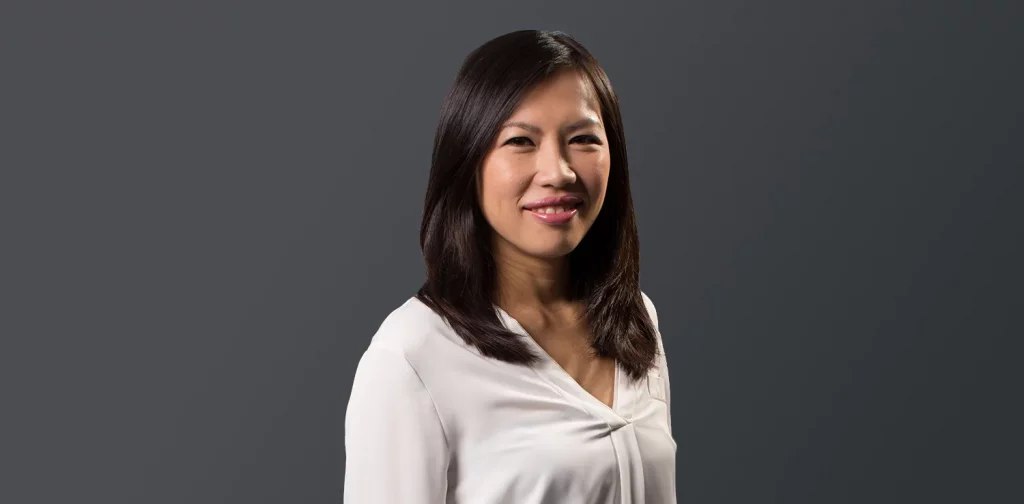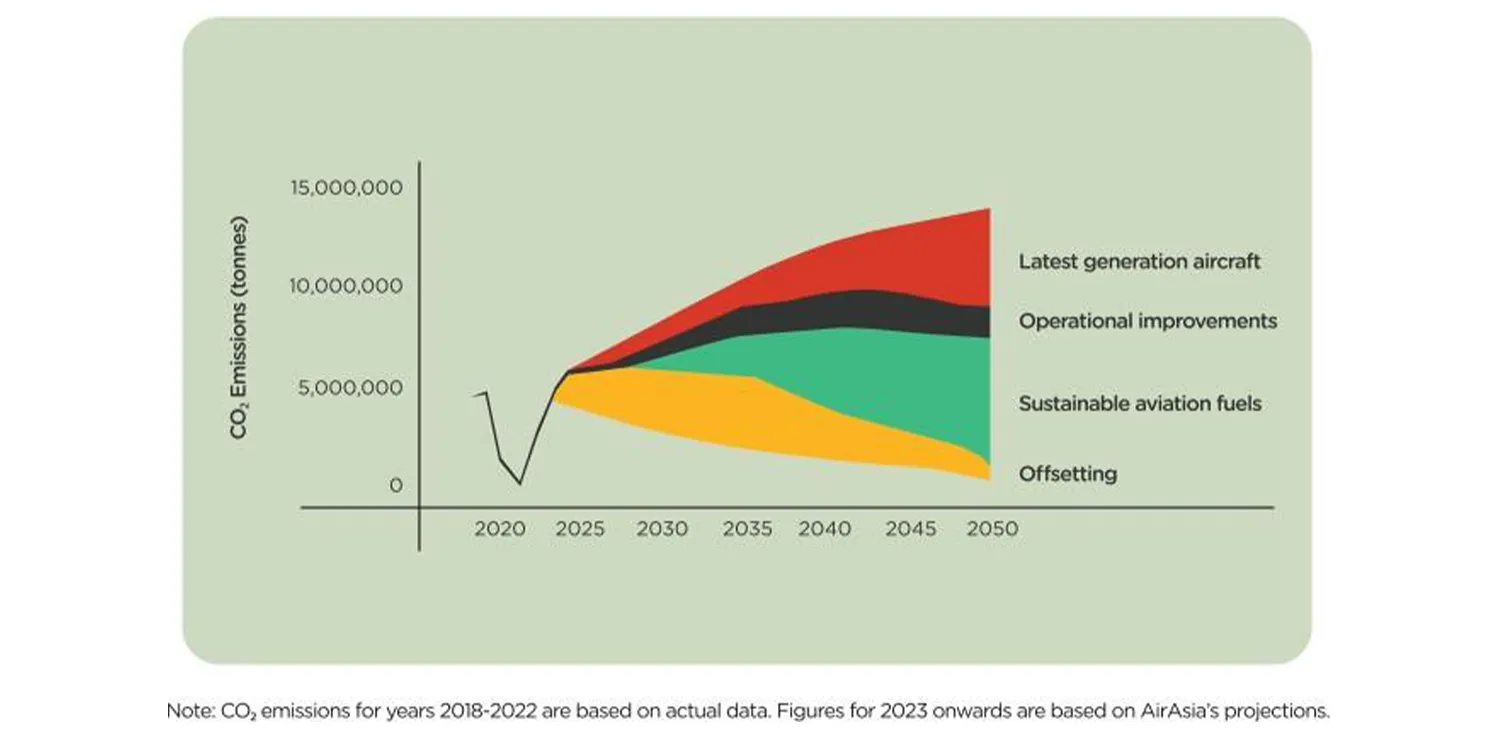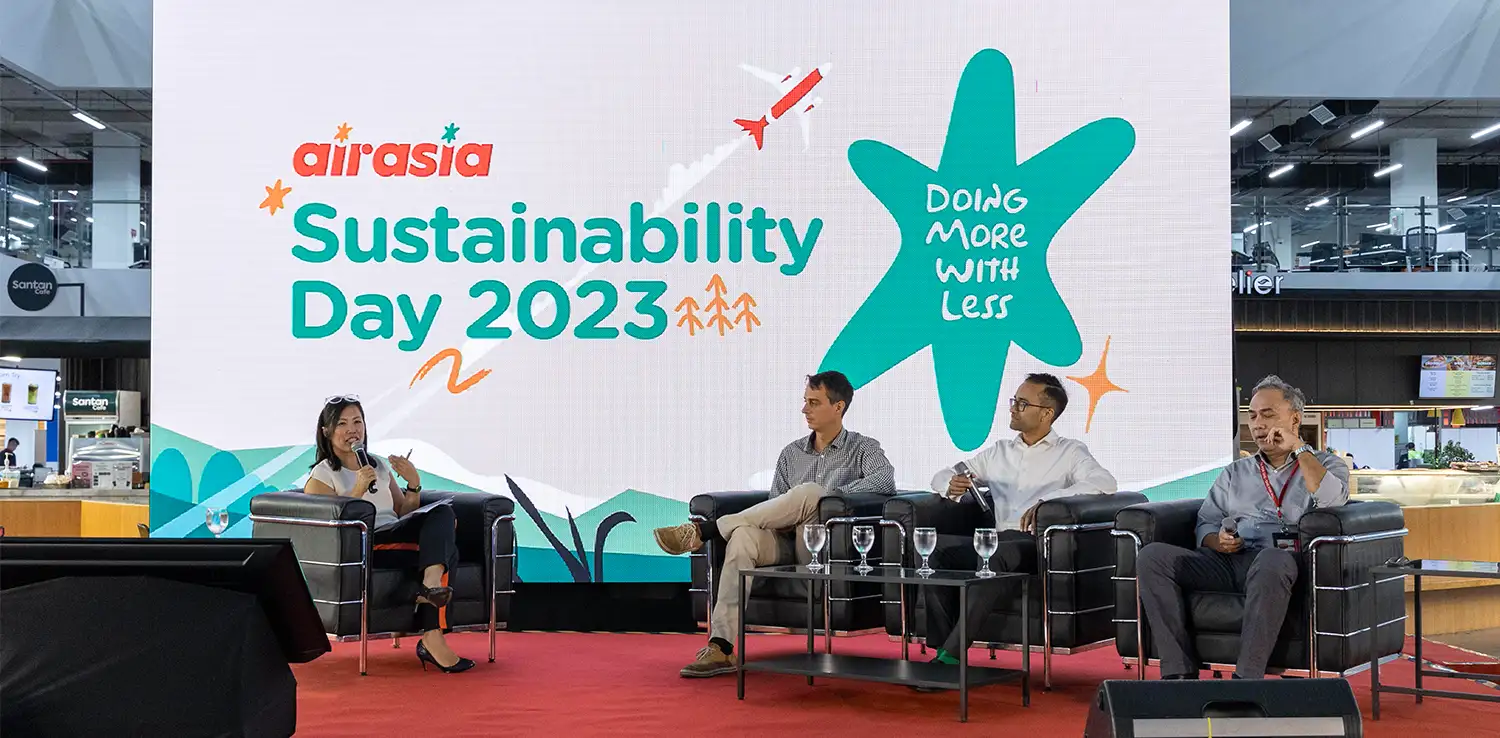An Interview with Yap Mun Ching, Chief Sustainability Officer at AirAsia

Yap Mun Ching, Chief Sustainability Officer at AirAsia. | Source: AirAsia.
Can you tell us about your organisation and your current role?
Capital A (formerly known as AirAsia Group) is an investment holding company with a portfolio of synergistic travel and lifestyle businesses that leverage data and technology. It embodies the Group’s evolution from an airline to a digital travel and lifestyle brand. Its diverse business verticals include Aviation, Aviation Services (Asia Digital Engineering, Santan, Ground Team Red, AirAsia Consulting, among others), MOVE Digital (BigPay, airasia ride, IKHLAS, airasia academy, among others), as well as logistics venture Teleport.
I was appointed to head the sustainability portfolio at AirAsia in October 2020. My role is to drive the strategic direction of the Group’s sustainability goals and efforts to achieve net zero carbon emissions by 2050.
What are your corporate sustainability commitments and goals?
Our sustainability strategy is underpinned by our roadmap, the Sustainability Redbook, which outlines our key objectives along with time-bounded targets to track our progress towards our goals. Our roadmap includes six (6) strategic drivers: reduce carbon footprint; create an enabling and inclusive workplace; strive for best practices; minimise waste; invest in our communities, and innovate to raise the bar. As we continue to gain a better understanding of how we can better align our business objectives with the global sustainability agenda, we continually review and update the Sustainability Redbook.
In line with the International Civil Aviation Organization’s (ICAO) long-term global aspirational goal (LTAG) for international aviation, we are committed to achieving net-zero carbon emissions by 2050. With the airline being the majority of our business, we have identified four pathways for AirAsia to converge towards our long-term reduction goal. This is through improving operational eco-efficiency, investing in the latest aircraft technology, exploring sustainable aviation fuel opportunities, and offsetting carbon emissions through the purchase of carbon credits.

What have been your most difficult challenges in achieving those goals?
Our journey toward sustainability in aviation has been marked by several formidable challenges. Firstly, the aviation sector is still recovering from the impact of the COVID-19 pandemic. There are significant constraints on budgets which limit how much airlines can invest in new technologies to decarbonise.
Given the situation, a practical way for us to integrate our sustainability objectives into our business strategy is to continue focusing on operational efficiencies so that we cut costs, especially in fuel consumption and avoidable CO2 emissions. While AirAsia operates the most extensive operational efficiency programme in Asia, there remains room for improvement. This requires the cooperation of air traffic management authorities around the region and the harmonisation of policies and procedures.
Second, the use of new decarbonisation solutions, such as sustainable aviation fuel (SAF), is limited by challenges over affordability and availability. According to the International Air Transport Association, global SAF production has reached over 600 million litres in 2023, double of what was produced in 2022. However, its price is multiples that of jet fuel.
Third, the understanding of sustainability in aviation faces a notable disparity among crucial stakeholders, particularly regulators, investors, and financiers. This knowledge gap poses a hindrance to devising solutions, as we often have to educate the stakeholders first before progressing to solving problems. In response to this, we created an aviation sustainability guide to help our stakeholders better understand the industry developments and our needs.
What opportunities do you see to address those challenges?
We believe in fostering a stronger collaboration between ASEAN stakeholders, from airline operators to civil aviation authorities, to strengthen regional capacity to offer solutions that enable the aviation industry to decarbonise. Aligning green operating procedures stands as an accessible means to reduce carbon emissions. AirAsia has actively shared its successful green operating procedures within ASEAN airlines in 2023 ASEAN. We hope to amplify our impact and create a more unified front toward sustainable aviation practices.
Innovation is vital for addressing climate change in the aviation sector. The ASEAN region offers ample opportunities to diversify their approaches, exploring ways to meet industry demands. This includes researching SAF from regions’ feedstock and developing carbon projects meeting the aviation decarbonisation standards. To harness these opportunities effectively, there is a need for increased investment in research and development, focusing on solutions that utilise local resources for regional advancement in these areas, thus steering us closer to achieving our sustainability goals.
What are the ESG material (environmental, social, and governance) issues that your organisation focuses on, and how do you integrate them into your corporate sustainability?
First, we focus on climate strategy. As an airline, we recognise the challenges faced by hard-to-abate sectors. However, our commitment to transitioning to net zero will see us investing billions into improving our fleet, increasing the efficiency of our operations, and investing in decarbonisation technologies. Our main focus is on our fuel efficiency programme that helps us reduce fuel consumption and carbon emissions, contributing to our Scope 1 greenhouse gas emissions reduction efforts.
Information security and data privacy is our second focus. As a data-rich company, it is our responsibility to safeguard the security of our customers’ information through enforcing robust information security measures. Alongside efforts following our Information Security Management System framework, we regularly train our employees on information security best practices. This has helped us maintain our ISO/IEC 27001:2013 certification since 2021.
Our third focus is on guest experiences. Our guests are our priority and it is important to us that they receive the highest quality of goods and services from us. Through using innovative digital technologies, we are continuously working to make our customers’ travel journey a seamless one. We have introduced our AI chatbot, AskBo, as well as an array of features on our super app (such as shared functionality, e-boarding passes, etc.) that help us operate more efficiently.
How do you communicate your corporate sustainability strategy and initiatives to internal and external stakeholders?
Our annual Sustainability Report highlights the performance of the year in review and is available to external stakeholders. To help our key stakeholders, such as bankers, analysts, and regulators, better understand what sustainability means in the aviation industry, we developed a guide that demystifies aviation sustainability jargon. We hosted a Sustainability Day on 27 June to share our goals and targets with key stakeholders and get them up to speed on the industry’s developments.
Internally, we engage Allstars (AirAsia employees) through our internal communications platform, Workplace, to share our initiatives and achievements as well as educational infographics so that they too can learn about sustainability.
What were the most exciting initiatives and progress that you and your team have done in 2023?
In 2023, we hosted the first Sustainability Day on 27 June for key stakeholders that included a series of talks on AirAsia’s sustainability journey and industry developments, as well as a tour to showcase the sustainability efforts done by the engineering team at RedChain (AirAsia Engineering Warehouse).
We also published the AirAsia’s Guide to Aviation Sustainability booklet for key stakeholders to better understand aviation sustainability. This book was purposefully designed to be friendly for readers of any background as it demystifies and simplifies key industry developments for stakeholders to understand our works.
Our organization was also appointed by the Civil Aviation Authority of Malaysia (CAAM) to chair Malaysia’s national task force for CORSIA implementation with the purpose to identify gaps in Malaysia’s net zero roadmap and to provide recommendations to CAAM on strengthening Malaysia’s State Action Plan (SAP).
Most recently, AirAsia marked its debut at the United Nations Framework Convention on Climate Change (UNFCCC) COP28 climate conference. Our participation this year served as a valuable opportunity to engage with international climate stakeholders and gain insights into the climate change mitigation strategies adopted globally and how they impact developments within our sector.

What are the lessons you learned from your sustainability efforts in 2023?
There is still a knowledge gap among stakeholders regarding sustainability in aviation, thus we took proactive measures by developing an aviation guide and organising a dedicated Sustainability Day to capacity-build the industry players of the region. Recognising that the journey towards decarbonisation requires collaborative endeavours, we emphasise the necessity of collective efforts involving both industry stakeholders and regulators for a meaningful national and regional impact.
Throughout this year, our focus has been on laying the groundwork by establishing connections with regulators and stakeholders across the ASEAN region. Through proactive engagement, we have shared our insights into industry concerns and identified potential areas for collaboration, paving the way for a unified approach to address the challenges of decarbonization.
There remains a considerable amount of work ahead. As we engage with our stakeholders, we continue to gain valuable insights to address the challenges and opportunities that lie ahead.
What are your plans for your sustainability efforts in 2024?
It is both the airline’s and customers’ shared responsibility to take ownership of their emissions. As an airline, we have invested in technologies that reduce our carbon emissions. We are now finding ways to encourage our passengers to offset their carbon footprint for their flights.
Besides, we are also looking forward to the possibility of cross-country collaboration for more sustainability initiatives. One of our major focuses in the coming year is strategic planning to secure carbon credits and SAF supply. This focus is important to drive us further towards achieving the carbon emissions goal in the aviation industry.
On a wider scale, COP28 has enhanced our understanding of what goes on at the climate negotiations. In the next year, we will be working to contribute towards these negotiations through being part of the technical committees so that we have a voice to represent the interests of the ASEAN region.
If you were to share advice you learned in your role that may be helpful to your peers and sustainability practitioners around the world, what would that be?
Sustainability is a shared responsibility across societies, regions, and countries. I encourage anyone passionate about this to never be shy from doing something different. You can be the change to make a change.
Editor: Marlis Afridah
This publication is a part of Green Network Asia’s Leaders in Sustainability Special Report 2023.


 Integrating Environment, Climate Change, and Sustainability Issues into Education Systems
Integrating Environment, Climate Change, and Sustainability Issues into Education Systems  Finally Enforced: Understanding the UN High Seas Treaty
Finally Enforced: Understanding the UN High Seas Treaty  Risks and Opportunities of Submarine Communication Cables for Sustainable Development
Risks and Opportunities of Submarine Communication Cables for Sustainable Development  Rising Attacks and Violence Against Land and Environmental Defenders
Rising Attacks and Violence Against Land and Environmental Defenders  Unveiling Potential Technological Risks amid Global Crises
Unveiling Potential Technological Risks amid Global Crises  Waste-to-Methanol, a Potential Sustainable Solution for Waste and Energy
Waste-to-Methanol, a Potential Sustainable Solution for Waste and Energy